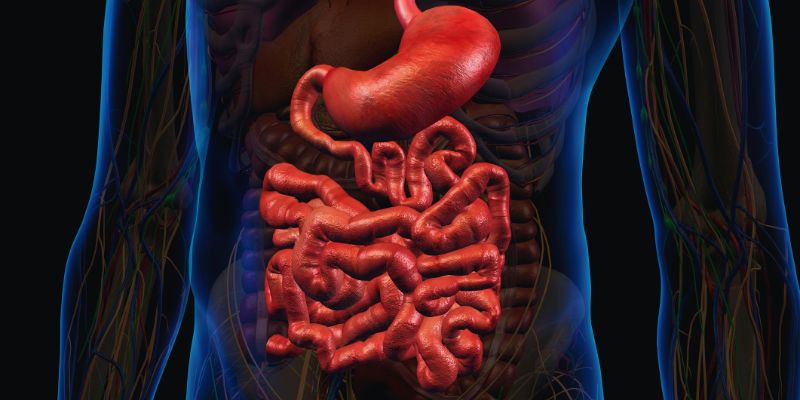This is a situation that is well understood in many households as post-meal fatigue, which is a wave of tiredness that comes after a meal. Although fatigue is common after a meal, chronic fatigue disrupts activities and general health. Learning more about this kind of fatigue and how to avoid meal-induced tiredness can go a long way toward improving your energy levels. In this article, we will also review the possible causes of fatigue after consuming a meal, which may include digestion, food choice, and other factors such as hormonal changes and lifestyle issues and how to avoid them.

Common Reasons for Feeling Tired After Eating
Digestive Process and Energy Use
Digestion is very energy intensive as the body works to break down the food and to assimilate nutrients into the body. As you are eating blood is diverted to the digestion organs to aid digestion, a factor that may at times slow down blood and oxygen circulation to the other body organs such as the brain. This means that after a meal, the body and brain feel tired and sluggish because of the change in energy allocation. It was also noted that any fatiguing process that requires energy, the more so the larger and heavier the meal, the more energy is utilised in digestion.
Blood Sugar and Insulin Response
Fatigue after meal is also directly associated with blood sugar levels and insulin as well. You get a high blood sugar level when you take carbohydrates; especially simple sugars and refined carbs are processed and turned into glucose. This leads to the release of insulin from the pancreas to control the blood sugar levels. Fluctuations in the blood sugar levels a rise and a fall cause fatigue and dizziness in individuals. Having carbohydrates in the form of whole grains, proteins and good fats will help balance out the body and avoid drowsiness.
Food-Related Triggers for Post-Meal Fatigue
High-Carbohydrate and High-Sugar Meals
Carbohydrate and sugar containing meals cause rapid up surges of glucose in the blood, followed by a rapid drop and the feeling of fatigue. Low GI foods include whole grain bread, cookies, candies, and soft drinks while high GI foods include white breads, sweet, and sweet beverages. That energy boost they give is usually followed by a crash that can make you feel more fatigued than before. It is advisable to go for complex carbohydrates than refined foods such as whole grain carbohydrates, fruits and vegetables to avoid fluctuations in energy level.
Heavy and High-Fat Meals
High fat meals take longer to be digested because the fat is denser than carbohydrates and proteins and thus puts more stress on the digestive system and therefore more likely to result in longer feeling of fatigue. Oils, greasy foods, and creamy sauces and gravies will take longer to digest and therefore you feel tired after you are done with them. Portion control and a combination of lean meats and fiber are some of the ways of avoiding post meal fatigue.
Hormonal Influences on Post-Meal Drowsiness
Serotonin and Melatonin
Consumption of some food can cause secretion of hormones such as serotonin which enhances relaxation. Serotonin is commonly metabolized into melatonin, a compound that controls sleep. Diabetic patients should avoid carbohydrate-based meals as they make the brain release serotonin, a chemical that induces sleep. This is advantageous when going to bed, but not so when one is during the day and requires to be awake.
It is thus important to know how hormonal changes affect post-meal fatigue so that you can decide what kind of food you want to take depending on your daily activities. For instance, eating protein and carbohydrate containing meals might help regulate serotonin levels and prevent extreme levels of sleepiness.

Lifestyle Factors Contributing to Post-Meal Fatigue
Eating Habits and Meal Timing
This is because eating at odd hours, skipping meals, or taking large meals in the evening can upset the biological clock and hence cause fatigue. Taking huge amounts or eating very often can exert pressure on the digestive system, making the person feel uneasy and tired. It helps to have a routine of when to eat and how to eat small portions of healthy foods during the day so you dont have energy highs and lows.
Hydration and Fluid Intake
This means that when you are feeling exhausted even after a meal, or when post-prandial fatigue is worsening, this could be attributed to dehydration. Hydration is very important in the body especially in aiding digestion and also in ensuring that the body has adequate energy. Sipping water alongside the meals and even before and after the meals is beneficial in cases of digestion and to avoid that feeling of exhaustion. However, patients should not take a lot of fluids with meals because these dilute the digestive enzymes and slow digestion.
Solutions to Reduce Meal Drowsiness
To prevent spiking and crashing of blood sugar levels, one should be able to take proportions of complex carbohydrates, lean proteins, healthy fats, fiber among others. Do not take too many simple carbohydrates and take your carbohydrate in smaller portions with more complex carbohydrates.
Mindful eating is known to improve digestion and decrease the levels of tiredness that come with eating. This is because, it will take time to chew the food, and you should not engage in other activities like watching television or working. They provide the body enough time to give the signal of satiety and avoid overeating and energy slumps. Another benefit of mindful eating is that the person gets a clear understanding of portions and what he is putting in the mouth.
Conclusion
Post-meal fatigue is a common experience with various causes, including the bodys natural digestive processes, dietary choices, hormonal influences, and lifestyle factors. By understanding these triggers and adopting practical solutions, such as creating balanced meals, practicing mindful eating, and maintaining proper hydration, you can reduce feelings of tiredness after eating and enhance your overall energy levels. If fatigue persists, seeking professional advice is essential for identifying and addressing potential underlying health issues. With a proactive approach, you can take control of your energy levels and lead a more active and fulfilling life.










